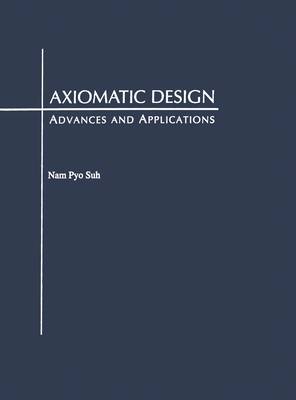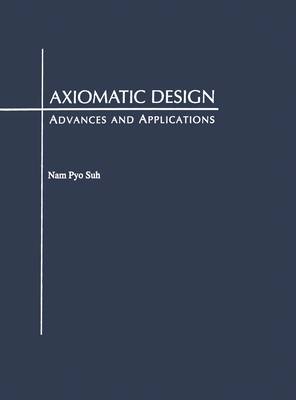
- Retrait gratuit dans votre magasin Club
- 7.000.000 titres dans notre catalogue
- Payer en toute sécurité
- Toujours un magasin près de chez vous
- Retrait gratuit dans votre magasin Club
- 7.000.000 titres dans notre catalogue
- Payer en toute sécurité
- Toujours un magasin près de chez vous
Description
Design education, research, and practice have recently seen considerable evolution as university programs, researchers, journals, and conferences systematize design as a discipline and science. Nam P. Suh's book Axiomatic Design: Advances and Applications contributes to this systematic and scientific base and presents a fresh perspective on design, establishing a rational framework for the discipline. The book follows Suh's successful publication, The Principles of Design (OUP 1990), although the two books are substantially different in both content and approach. The first three chapters of Axiomatic Design cover the fundamental principles of axiomatic design. The following chapters offer a complete treatment of the design of systems, software, materials and materials processing, manufacturing systems, and product design. Suh shows how a scientific and systematic approach to design improves efficiency, productivity, savings, reliability, and quality for industries that currently rely on ad hoc design systems; Axiomatic Design contains the principles and practical knowledge necessary to achieve these improvements. Perfect for senior and graduate design and mechanical engineering students as well as professional engineers, this unique text offers the tools necessary to design with ease and elegance and serves as a stepping-stone in the ever-evolving intellectual science of design. Features - Applies the principles of axiomatic design to a variety of real-life situations including mechanism design, software engineering, and basic business processes - Includes numerous integrated case studies using axiomatic design to solve real-life design challenges - Draws material from consulting cases with industrial firms throughout the world - Requires no prerequisite reading (The Principles of Design can be read for clarification)
Spécifications
Parties prenantes
- Auteur(s) :
- Editeur:
Contenu
- Nombre de pages :
- 528
- Langue:
- Anglais
- Collection :
Caractéristiques
- EAN:
- 9780195134667
- Date de parution :
- 04-05-16
- Format:
- Livre relié
- Format numérique:
- Genaaid
- Dimensions :
- 216 mm x 279 mm
- Poids :
- 1500 g







